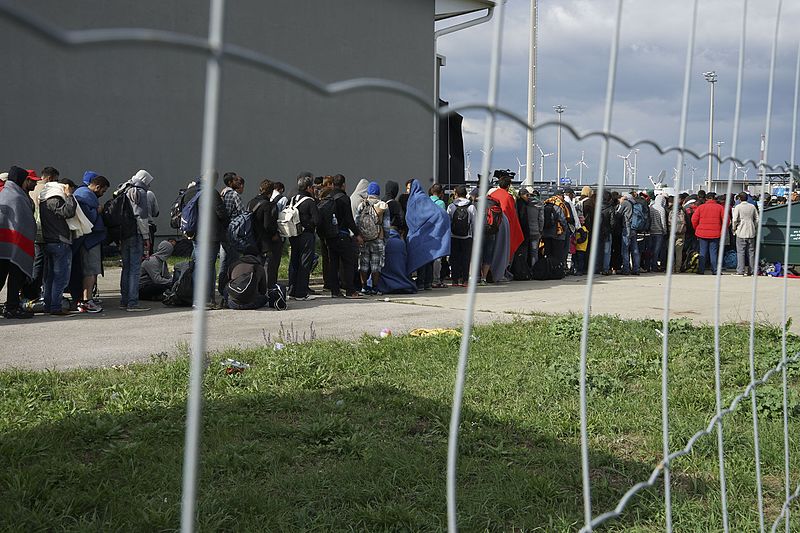
Germany is witnessing a surge in Turkish citizens seeking asylum, particularly among the educated who oppose the government and see limited prospects for the future in Turkey.
Many individuals are fleeing to Germany, but the German authorities are becoming more cautious about granting asylum.
"Living in constant fear and uncertainty, expecting the police to return and forcibly take us from our homes, bring us to the station, and subject us to torture... we could no longer endure it. Following my father's death, we made the decision to leave the country," revealed B.K., a former English teacher who chose to withhold his full name.
In a composed and subdued tone, he recounted to DW how he and his wife embarked on a perilous journey across the Aegean Sea on November 1, eventually arriving in Germany seven weeks later. Since then, they have been residing in refugee accommodation centers, currently located near Aachen in western Germany.
Having faced charges as members of the "Gülen organization" in Turkey, they have now sought asylum in Germany while awaiting the government's verdict. The Gülen movement, led by Muslim cleric Fethullah Gülen now residing in the United States, has been labeled a terrorist organization by Ankara, accused of orchestrating the 2016 attempted coup.
Turkey Overtakes Afghanistan as Top Asylum Applicant According to Germany's Federal Office for Migration and Refugees (BAMF), over 23,000 Turkish citizens have applied for asylum in the country this year, marking a 203% increase compared to the same period last year.
In July alone, 3,791 Turkish citizens submitted asylum applications, surpassing Afghan citizens and now ranking second only to Syrian nationals.
This trend is in line with expectations of Turkey experts, who predicted this development after President Recep Tayyip Erdoğan secured his reelection in May.
Dündar Kelloglu, a lawyer and board member of the Refugee Council of Lower Saxony, explained that the portion of the electorate that did not vote for Erdoğan feels disillusioned. These voters had hoped for a change in government and improvements in the country's political and economic conditions.
Kelloglu noted that the current pessimism is even more pronounced than after the 1980 military coup. He emphasized that the tense political environment and persecution of opposition figures continue unabated.
Since the 2016 coup attempt, the Turkish government has intensified its crackdown on dissenters. Numerous opposition members have been incarcerated, while thousands more have lost their jobs over suspected involvement in terrorism. Applicants for positions, whether in the public sector or much of the private sector, require affiliations with the ruling party or religious foundations supporting Erdoğan.
Yasar Aydin of the German Institute for International and Security Affairs also pointed out that Turkey is grappling with an economic crisis that may worsen without more hardship and wealth depletion. The prospects for well-educated individuals are diminishing daily, prompting those who see an uncertain future in Turkey to seek refuge in Germany.
Economic Deterioration Under Erdoğan Turkey's economic situation has deteriorated significantly over the past two years. Erdoğan's policy of low interest rates has led to a plummeting currency and soaring inflation. Inflation rates hit 48% last month, and the central bank predicts a further rise to 58% by year-end. This has plunged large segments of the population into poverty.
Erdoğan had pledged improvements following his reelection. He appointed advocates of economic orthodoxy to the Finance Ministry and central bank, signaling a shift from his low interest rate strategy. However, taxes and the central bank's key interest rate have been raised several times, resulting in even steeper inflation.
Erdoğan aims to stabilize the situation ahead of the local elections in spring 2024. He hopes to regain control of key Turkish cities, including the capital Ankara, Istanbul, Izmir, and Antalya, which collectively contribute significantly to Turkey's GDP.
Germany's Allure for Turks Germany appeals to those who doubt Turkey's prospects for improvement and those fleeing for political reasons. With a preexisting population of 3 million people of Turkish descent, newcomers have access to family and friend networks. Many Turks are also entering through irregular means.
In 2021, 7,067 Turkish citizens sought asylum in Germany. This figure more than tripled in the subsequent year, reaching 23,938. In July this year, the number of asylum applications surpassed 23,000.
Aydin anticipates that the influx of Turks to Germany will remain high in the coming years due to political developments and impending economic challenges.
Reduced Likelihood of German Asylum Despite the growing number of applications, the approval rate for Turkish asylum-seekers in Germany has declined in recent years. In 2022, the approval rate was 27.8%, dropping to 15% this year.
The reasons for this drastic reduction remain unclear. BAMF, which evaluates each asylum application based on individual circumstances and considers political and social conditions in the home countries of applicants, has not commented on whether it believes the human rights situation and rule of law have improved in Turkey.
Kelloglu criticized the shifting assessment of Turkey by BAMF. Previously, asylum was granted to those persecuted for political reasons or at risk of imprisonment. However, the criteria have become stricter, only allowing asylum for those already sentenced to prison. Applications from individuals pursued by the Turkish state or facing ongoing legal cases are rejected.
Kelloglu explained that this change was based on the notion that those on trial could be acquitted in higher courts. He noted that some German courts had concluded that Turkish dissidents were no longer subject to lengthy sentences. Consequently, the asylum acceptance rate has dropped.
For B.K. and his wife, who applied for asylum in June, they await a "favorable decision." Otherwise, they are unsure of their next steps. Their family cut ties with them upon their conviction for affiliation with the Gülen movement, fearing reprisal.
"All we have is hope and each other," B.K. expressed. "Nothing and no one else."



































